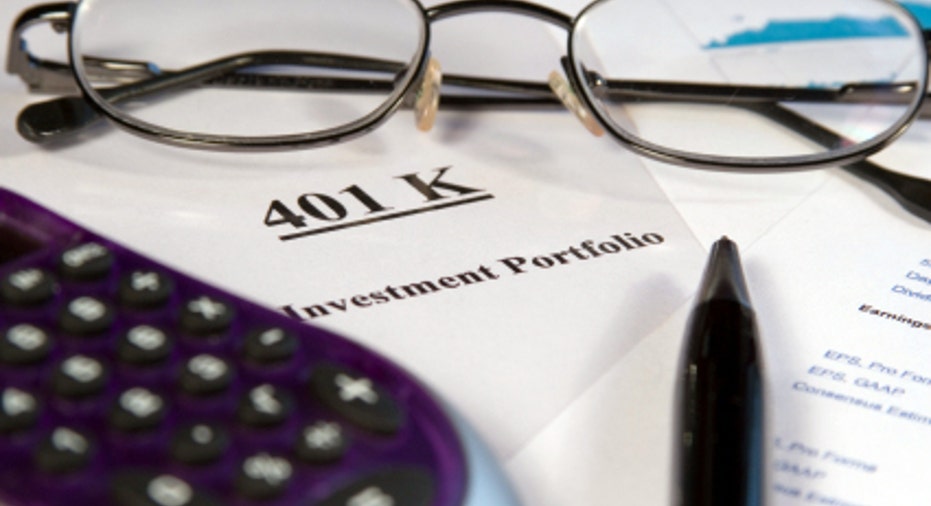How to Reinvest Your 401(k) to Buy a Business

Almost a decade ago, David Shahin, an IT veteran, decided to leave behind the corporate world and launch his own business. Setting off to become your own boss is always a gamble, but Shahin was doubling down on his risk: he used his 401(k) to fund the venture.
Shahin wanted to buy Flow Components and Equipment Supply in 2005, but didn’t have the funds on hand to make the down payment. So he decided to put his 401(k) account, which had accumulated “several hundred thousand dollars” in his 24 years in the corporate world, to work. He turned to Pennsylvania-based company Benetrends which offers a “Rainmaker Plan” that enables entrepreneurs to use their qualified retirement plans to purchase or recapitalize a business or franchise, tax deferred and penalty free.
Shahin didn’t make the decision to roll his retirement funds into a new company lightly.
“At that time I’d never heard of anything like that. And that was exactly the break I was looking for,” Shahin says. “But I still wanted further proof that this is something that is legal and can work.”
How it Works: The Rainmaker Plan
With credit markets still tight, many would-be business owners are finding alternative ways to fund their endeavors. According to Benetrends CEO Rocco Fiorentino, his business has experienced year-over-year growth over the past couple of years as more people become aware of the option.
Benetrends specializes in 401(k) rollovers (also known as ROBS) and manages retirement plans and funding for franchise brands. According to Fiorentino, the average cost to open a franchise varies on location and size, and can range from hundreds of thousands of dollars to millions of dollars. He claims that while there’s no risk in transferring funds, there’s always a risk in starting a business, which is why he urges his clients to do their due diligence before making any funding decisions.
Shahin worked with Benetrends to transfer his 401(k) funds into a new 401(k) account, which he reinvested to get the down payment for his new business.
Using the Rainmaker Plan brings “a little bit of a better opportunity to ramp up and utilize dollars to get your business off to a good strong start."
“How you funded the business is immaterial, except that when you use your rollover funds, you have no debt service,” Fiorentino says. He points out that taking a second mortgage -- a common way budding entrepreneurs secure funding -- means they have to pay back the interest on the principal. He says because of this, using the Rainmaker Plan brings “a little bit of a better opportunity to ramp up and utilize dollars to get your business off to a good strong start."
Benetrends primarily works with franchise brands and charges less than $5,000 to help clients with everything from tax returns and corporate minute books.
“Instead of investing 401(k) dollars into any company, we use your funds to invest into your business, making you the main stockholder,” Fiorentino explains. The IRS requires that the business be a C-Corp when using this funding method and that the owner creates a retirement plan (that would own stock in the new company) for employees.
Do Other Alternatives Exist?
While this method is legally recognized by the IRS, not everyone agrees on using a 401(k) funds for anything other than retirement.
Chad Parks, CEO of The Online 401(k) which creates retirement plans to small businesses, calls the rollover program a “tax trick” and points out that it’s a hard thing to do “regardless of the vehicle.”
“Your 401(k) is supposed to be your retirement nest egg, not a pile of money you put in a pile of high risk. And the risk of failing is very high,” Parks, who has a background in financial advising, says.
Recognizing tight lending practices make securing a traditional loan hard, Parks warns those looking to tap their 401(k) to only use part of the funds. He adds that not using 401(k) funds provides more the owner more protection if a business goes belly up since the account is considered a protected asset in bankruptcy.
“As goes to the prudent adage of diversifying,” Parks says, “If people want to start businesses they should specifically set a pool of money to do that, while saving for retirement.”
Parks also emphasizes that securing a loan from the Small Business Administration is a better long-term option. In fiscal 2014, SBA-backed loans to new businesses totaled about $3.7 billion, up 11.27% from the year prior.
“I’d gladly pay 6 or 8% interest on borrowed money,” Parks says, adding that if you used other funding to launch it, “you’d still have your 401(k).”
Fiorentino says taking out an SBA-backed government loan using retirement dollars is gaining popularity. He explains the loan is to the new entity, giving it a penalty-free, “initial cash injection” that the C-Corp then pays off.
For Shahin, the ability to use his 401(k) to purchase Flow Components was the best financial option for him.
“Without this Rainmaker program I wouldn’t have been able to buy the business,” Shahin says. “I have four kids, and I’m a family man, so [providing for] my kids was my priority.”
Shahin purchased Flow Components, which fabricates and distributes products to industries like power plants and mining, for two reasons: the warm location (it’s located in Florida) and because it allowed him to hire disabled veterans.
John, one of Shahin’s sons, was honorably discharged from the Marines after suffering multiple injuries while serving in Fallujah. He also has PTSD. Right now, about 25% of his employees at Flow Components are a veteran, and John is one of them.
“I can’t begin to tell you what purchasing Flow Components has done for me and my family.”



















